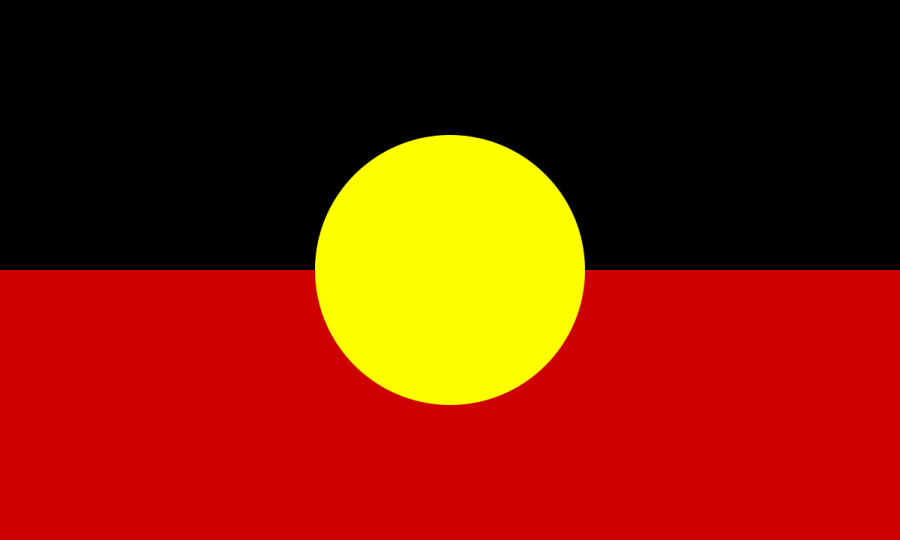In Australia's remote northeast Arnhem Land, Wangurri clan Elder Timothy Buthimang pursues his vision: ensuring that self-sufficient Aborigines are gainfully employed utilizing the land and sea as they did in olden times, before the widescale movement of peoples into centralized mission communities in the 1940s. Through the Aboriginal Land Rights (NT) Act 1976, the Aborigines of Arnhem Land hold title to their lands, but thirty years of mission life and welfare dependency have taken their toll. Living off the land is challenging at best, and even more so if people have become accustomed to a life circumscribed by short-sighted policies directed by outsiders.
Many of the senior generation long for the life of old, and wish to move their families away from the problems of central communities back to their own ancestral territories. Galiwin'ku-based Buthimang believes that this transition from a welfare-based existence to a life of self-reliance is a difficult but necessary one. As Arnhem Land's most famous gardener, he brings a new dimension to discussions regarding self-determination. He is concerned that Aborigines adhere to the laws of old and follow in the footsteps of their ancestors -- but he also believes that they must be alert and receptive to new ideas. Since the 1970s, he has facilitated the movement of Aboriginal peoples away from central communities back to their homelands by creating gardens in places as widely separated as Jenson Bay in the Wessel Islands (for the Golpa tribe), Gapuwiyak (for Dhalwangu and Marrangu peoples), and Gulamari and Galawara (for the Mandjikay tribes). His Wangurri Garden Project has established fruit and vegetable gardens on these remote fledgling outposts to supplement store food supplies and traditional turtle and kangaroo hunting. This support alleviates the constant need to return to the central community for provisions, and people are better able to make the adjustment to a bush life.
His inspiration is the ancient cycad tree, or Dinggu, as it is known in Arnhem Land languages. The Dinggu is a totem of the Wangurri clan and one of the most sacred of food sources. Prior to the current widespread use of flour, Dinggu was a staple in the Arnhemlanders' diets. As Buthimang says:
I look to the Dinggu: always growing, producing food for the people, from the land. The Dinggu is my example, and it is a good example for the Aboriginal people to follow. I see people hunting for guya (fish) and ngatha (bush foods) and I think, this is right. We live off the land. But the world is different now. I can grow bananas, mangoes, and cassava. The land is our resource to use.
In the 1980s Buthimang single-handedly built -- for the Wangurri peoples, the descendants of Batangga and Makarrwola, leaders who had brought peace to warring tribes in the early years of the twentieth century -- a new outstation at Muthumul at the entrance to Arnhem Bay. The spirit of the land was calling him, Buthimang says:
When we live in the land -- our own land -- there is no poverty. Food is plentiful and there is much happiness. When you walk on the beach and feel the sand beneath your feet, when you sing the sacred sings of the ancestors, when birds whisper their message to you and flowers in bloom signal that it is time to hunt the stingray -- it brings a new freshness to your life. It gives you new life. This feeling comes from the country -- from the spirits in the land and sea. It makes you strong and able to live the right way in accord with the law. When this occurs, we call the land Madarryulngi, the heavenly place. We are trying to get this spark back into our lives; all the clans have it and can use it.
With your help, the Wangurri Garden Project will enable Buthimang to continue his important work in revitalizing Aboriginal cultures. He is currently building a garden in the Wangurri homeland of Muthumul which will supply mango, banana, and cassava to several newly established communities. A donation of $50 will help pay for essential gardening tools and allow for the purchase and transportation of fertilizer, seed, and seedlings to these outstations.
Article copyright Cultural Survival, Inc.

